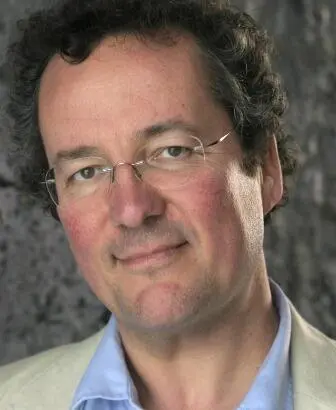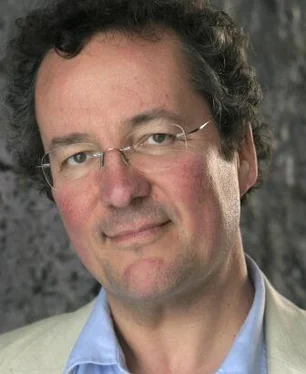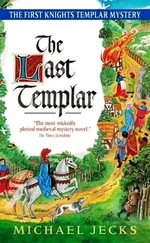Michael Jecks
THE TEMPLAR’S PENANCE
2003
To paraphrase P.G. Wodehouse…
This book is for the builder and his wife, without whose wine, food and conversation this book would have been finished in a third of the time.
Thanks, Bob and Heather.


Michael Jecks gave up a career in the computer industry to concentrate on his writing. He is the founder of Medieval Murderers, has been Chairman of the Crime Writers’ Association, and helped create the Historical Writers’ Association. Keen to help new writers, for some years he organised the Debut Dagger competition, and is now organising the Aspara Writing festival for new writers at Evesham. He has judged many prizes, including the CWA Ian Fleming Steel Dagger. Michael is an international speaker on writing and for business. He lives with his wife, children and dogs in northern Dartmoor.
Michael can be contacted through his website: www.michaeljecks.co.uk.
He can be followed on twitter (@MichaelJecks) or on Facebook.com/Michael.Jecks.author.
His photos of Devon and locations for his books can be found at: Flickr.com/photos/Michael_Jecks.
Claveiro
Key-holder or castellan of a castle (in Portugal).
Espada
The symbol of the Knights of Santiago. The upper part was a cross, but the lower part was shaped like a sword’s blade.
Frey, Freiles
‘Brother’, ‘Brothers’: the term given to knight warriors.
Furtum sacrum
The theft of a set of relics by a rival church was a recognised crime, but it was condoned as being a pious act. Our forefathers took the view that if the Saint in question objected, he or she had it in their power to prevent it.
Hidalgo
A low class of noble, a hidalgo was on a par with a reeve, probably, but was born to his position rather than elected. Hidalgos would often work in the fields with other townsfolk, which meant that they were looked down upon by other, higher nobles.
Malfechor
During the troubled early years of the 1300s, a raider or thief who preyed on travellers, villagers and anyone else they could rob or kill.
Maestre
Master – in Castile.
Mestre
Master – in Portugal.
Mudéjar
A Moslem living under Christian rule after the reconquest.
Pesquisidores
The title given to certain ‘enquirers’ in Castile from the early thirteenth century. Its literal meaning is: well-informed men who fear God.
Sir Baldwin de Furnshill
A former Knight Templar who is well-known as a resolute investigator of crimes in Devon. It is a new experience for him to be investigating a murder in a different land, Galicia, without the support of his wife, Lady Jeanne, and his servant, Edgar.
Bailiff Simon Puttock
Baldwin’s friend for many years, the Stannary Bailiff from Dartmoor is less used to travelling and finds Galicia more intimidating than Baldwin does.
IN COMPOSTELA
Dom Afonso
The son of a religious man, Afonso is burning with the determination to avenge his father’s death.
Caterina
The widowed sister of Domingo, and cousin of Joana, Caterina was rejected by her Christian father when she married her Moorish husband against his will. Now she is forced to beg in the streets.
Sir Charles
Once a proud supporter of Earl Thomas of Lancaster, Sir Charles now has no protector and must find a living as best he can.
Domingo
Leader of a small group of thieves, Domingo is distraught to witness the death of his son Sancho at the hand of Sir Charles; he is determined to exact revenge.
Gregory of Coventry
The ex-husband of Doña Stefanía, he has become a sad, disillusioned man. Now a cleric, he is appalled to see his ex-wife in Compostela.
Guillem
The clerk to Munio, who keeps notes and records all the Pesquisidor’s enquiries.
Joana
A lowly-born woman, she has been maid and confidante to Doña Stefanía for some years.
Margarita
Although she has the dark beauty of a Castilian lady, Margarita is in fact an Englishwoman from Oxford, who married Munio while he studied there.
María de Venialbo
A beggarwoman seen in the streets of Compostela. Like other mendicants, she is unpopular, for even pilgrims object to paying out good money to beggars!
Matthew
Baldwin made many friends when he was a Knight Templar, but most have faded from his memory over the last fifteen years. Matthew’s is one face he recognises. When the Order was destroyed, Matthew was left with nothing, and now he must beg his daily allowance from pilgrims.
Munio
In the city of Compostela, there are elected official investigators, the pesquisidores, of whom Munio is one. He studied in his youth at Oxford, and speaks fluent English.
Parceval Annesen
Forced to go on pilgrimage to atone for the murder of a fellow merchant in Ypres, Parceval is anxious lest he be seen to be wealthy, and thereby robbed or captured and held hostage. To avoid this, he conceals his wealth.
Paul
Squire and general man-at-arms to Sir Charles, he also sees to Dom Afonso’s needs.
Frey Ramón
One of the famous Knights of Santiago, Frey – or Brother – Ramón is apparently a devoted Soldier of Christ.
Don Ruy de Benavente
A knight forced to go into exile, unjustly accused of crimes against a young woman.
Doña Stefanía de Villamor
The Lady Prioress of the convent at Vigo is fearful that her money might be stolen, but still more worried about the contents of her purse. They are not hers, and she shouldn’t have kept them.
It is impossible. I find, to hope to fire a reader’s interest in a subject without already being intrigued by it myself.
I know that is not an astute observation, yet it’s something many of my friends don’t appreciate, because I have often been asked to write on subjects which are well outside my sphere of interests. As a crime writer concentrating on medieval England, I was bemused to be advised that I should write a novel about Formula One and Indie motor racing. ‘Millions watch racing, Mike, you’d make a fortune!’
Thanks, Ramsey, but there are some things I do not want to write about!
The converse of this is also annoying. Sometimes I really do want to cover a subject in more detail, but can’t.
When you have spent months of your life researching a subject until you really live and breathe it, it’s very hard to discard the bulk of what you’ve learned in order that your editor won’t tell you off for trying to preach about your era. Sadly, though, she’s usually right. All the fascinating little details which get culled would have slowed the story down.
For example, there are two strands which led me to write this book. First is the difference (or lack of one) between English justice and law and the European model. The second is the theme of the ‘warrior monk’.
Читать дальше














